1867-68
Course offerings include Political Economy and, in the “Normal” and “Academic” Departments, a “Commercial Course” consisting of Bookkeeping, Penmanship and Commercial Arithmetic. (See Supplementary Note 1.)
1894-95
Among the four Political Science courses are “Political Economy I and II” using as texts Richard Ely’s volumes by that name. Ely was the founder and first President of the American Economics Association and his text supplanted Alford Marshall’s as the most widely used in America.
1895-96
Course offerings include two entitled “Economics.” The Academy’s commercial offerings have expanded to five: Bookkeeping, Penmanship, English & Letter Writing, Phonography, and Typewriting. (See Supplementary Note 2.)
1897-98
A three-page announcement of a “Business School” giving reasons for a Business School with information about it, e.g., expenses and a list of course offerings. These now numbered 13 with such additions as Commercial Law, Geography, Correspondence, Mathematics along with a truly astonishing course-“World’s Fair.” Both “Business School” and “World’s Fair” appeared only in this catalog. (See Supplementary Note 3 .)
April 1910
Courses listed under Political Science include: Economics, Public Finance, Money and Banking.
1911-12
Economics course listed as Political Science (along with two Sociology courses) in the College department while ten “Business Studies” courses are included among “Vocational Schools.”
1915-16
Vocational Schools include a “School of Commerce.” (See Supplementary Note 4.)
1918-19
Albert G. Weidler joins the College faculty to teach Latin. A year later (1919-20) he is listed for Latin and Chemistry. The 1920-21 Catalog (announcing William J. Hutchins as President, succeeding Frost) identifies Weidler as Dean of Labor and Professor of Sociology & Latin.
1919-20
The department becomes “Sociology and Economics” with three Economics courses, two in Sociology.
May 1921
Among the Economics courses (in the Economics/Sociology Department) is one entitled “Principles of Business Administration.”
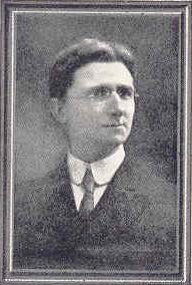
1922-23
Lists Economics & Sociology as a College Department and, in the Vocational School, lists two: Department of Economics and Social Science and Department of Business with 13 courses.
1924-25
Under Courses of Instruction, a department called “Economics,” is listed with one course and one teacher, Dr. Weidler. He is listed also as one of two teachers for “Sociology and Social Service.”
1925-26
A. G. Weidler identified as “Dean of Labor, Professor of Economics.” The Department of Economics offers two courses. In the Academy, there are 18 “business” courses – five in Accounting, two in Salesmanship, three in Stenography and others.
1926-27
College program offers two B.S. degrees (Agriculture and Home Economics) as well as the A.B.
1928-29
List of possible B.A. majors includes “Economics” as well as Economics and Sociology. Course offerings in Economics now total nine, but only Weidler is listed as staff. (Four courses in Agriculture, Math and Sociology may be counted toward an Economics major.) By 1931-32, with only Weidler listed as staff, the Economics courses total 13. (See Supplementary Note 5.)
1935-36
Dept. of Economics staff includes Rector Hardin (A.B., Berea, 1929; M.A. and Ph.D., Duke) and Albert Weidler (A. B., Westminster; A.M. and Ph.D., Pittsburgh; Th.B., Pittsburgh Theological Seminary; B.D., S.T.M., Western Theological Seminary; and A.M., Harvard)In the Academy, the Business Department has a staff of four, including Clarence C. Dawson and Mrs. Anna R. Walker.
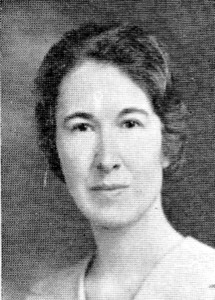
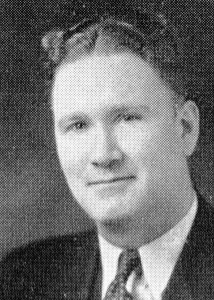
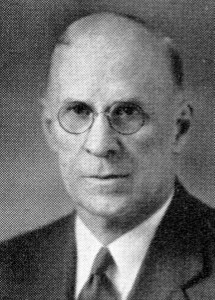
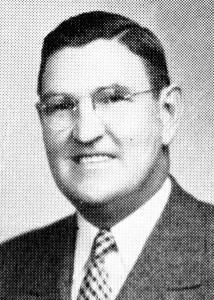
Oct. 1938
Draper Building completed; used by “Lower Division.” Lower Division lists three business faculty: Evelyn Alspach, C.C. Dawson, and William E. Newbolt.
1940-41
Economics Department now has 18 courses and a staff of four: Weidler, Hardin, Dawson, and Newbolt. Lower Division has a Social Studies Department with one Economics course among eight. (See Supplementary Note 6.)
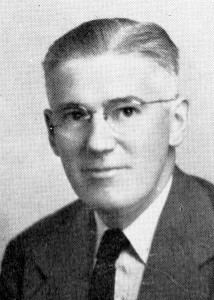
1941-42
Academy lists a Department of Business with 16 courses. The Vocational Department includes a “Department of Economics and Business” with a staff of six, including Patti Jo Russell.
1943-44
The Economics Department lists 28 courses of which 8 are clearly “Business” courses (e.g., Accounting, Secretarial, Office Machines, Management).
1946-47
Degree offered in B.S. in Business Administration with curricula in Business Education, Stenography, and General Business. (See Supplementary Note 7.)
1947-48
“Lower Division” is gone; Economics Department includes Albert Weidler, William Newbolt, Robert Menefee, Dr. Rockwood Chin, and Miss Hazel Lincoln.
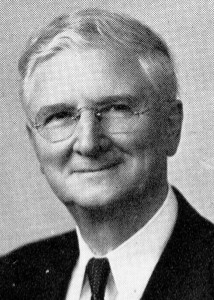
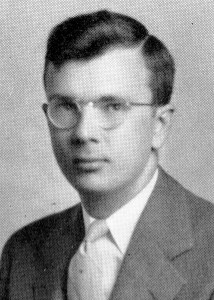
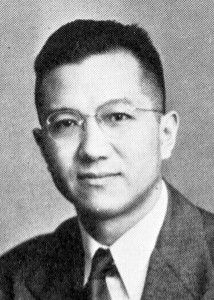
1948-49
Catalog listing for the Department provides separate lists for Business (16 courses) and Economics (19 courses).
1950
Orville Boes hired to replace Miss Lincoln (retired) and is the first male to teach secretarial courses.
1952-53
William Newbolt, Chairman (Weidler has retired).
1953-54
B.S. degree curricula include Hotel Management (along with Business Education, Business Stenography, General Business). (See Supplementary Note 8.)
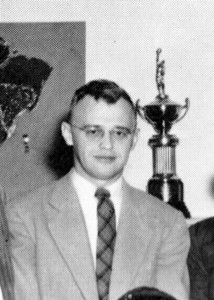
1955-56
Richard T. Hougen, Manager of Boone Tavern (1940-76), is listed as a member of Economics/Business Department staff.
1957-58
One-year appointment of Donald Crawford (Berea ’53) and Thomas Kim (Berea ’52) meant that the Department staff of six includes four Berea graduates with Wilson Evans and Robert Menefee.
1960-61
William Newbolt resigns as Chair; Menefee is appointed. (See Supplementary Note 9.)
1962-63
Departmental self study is completed. (See Supplementary Note 10.)
1964
Robert Johnstone is appointed as Professor of Economics and Chair of Agriculture Department, teaching in both departments. Bernard Davis joins the faculty.
1968
Philip V. Spears, Assistant Professor of Economics and Business, joins the faculty.
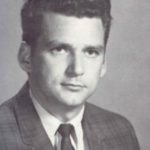
1970
William F. Stolte, Associate Professor of Economics, joins the faculty.
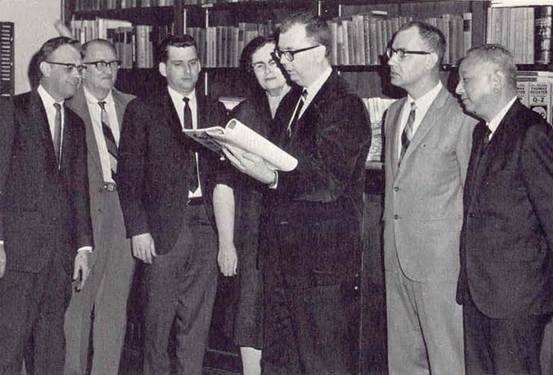
1970-71
Curricula name changes to “Executive Secretarial Training” and to “Management.”
Permanent faculty includes Davis, Johnstone, Spears, Boes and Stolte, along with Hougen, Menefee, Newbolt, and Daniel Yang. (See Supplementary Note 11.)
1971
W. George Matton Chair in Economics and Business Endowment is established through the will of the late Mr. Matton. Dr. Robert G. Menefee receives the first appointment.
1972
W. F. Stolte appointed Academic Vice-President and Dean of the College (to 1986).
1972-73
Menefee resigns as Chair; Bernard Davis is appointed.
1975
R. Wayne Tolliver, D.B.A. (Berea, 1975) joins the faculty.
1975-77
There are by now three Departmental scholarships: (See Supplementary Note 12.)
- Chin-Wang in Economics and Business (one in each field)
- Joel P. Dean in Economics
- Albert G. Weidler Memorial in Social Studies
1979-81
Davis resigns and moves to Morehead University; Menefee appointed to a 5-year term as Chairperson.
1980
Carl Hogsed, Jr. joins the faculty. Approval for an office manager staff position; Susan Burberry hired (to 1988).
1981
Clifford B. Sowell, Professor of Economics, joins the department. Departmental program assessment conducted.
1982
G. Edward McCormack, Assistant Professor of Business joins the department.
1982-83
Among B.S. curricula “Office Administration” has replaced “Executive Secretarial Training.”
1984-85
Mr. Hougen who made Boone Tavern famous and developed the Hotel Management program retires a second time.
1985-87
Sowell appointed Chairperson; Menefee returns to full-time teaching (retires 1987); Stolte returns to department as Professor of Economics (retires 1998).
1986-87
First curricular nod to the computer: “Office Machines” becomes “Word Processing.” First department computer lab is installed; computers donated by People’s Bank and its holding company, Whitaker.
1987-89
Options for achieving B.S. degree in Business Administration revised:
- Hotel Management
- Business Administration with an emphasis on accounting, finance, marketing, or office systems
- Foreign language recommended, not required
1987-88
Jim Whitlock, “on loan” from IBM for a year installs a Local Area Network (LAN) in spring and summer using PS2’s that were purchased by the college through its budget. The LAN, a Novell network, is donated by Novell.
1988
Becky Grandgeorge hired as office manager/labor supervisor.
1988-89
One Mathematics course, two Economics and two Accounting courses become prerequisites to admission to Business Administration major.
J. B. Morgan, Manager of Boone Tavern, joins Department as Assistant Professor of Hotel Management. In 1990, he is succeeded by Robert Stewart.
1989
Ed McCormack develops and directs the summer Student Intern-Entrepreneur Partnership Program.
1989
Patricia Isaacs, Assistant Professor of Economics and Business, becomes the first female hired to a tenure-track position.
1991
Orville Boes retires. Martie Kazura, Assistant Professor of Business, joins the faculty. Secretarial courses, except for keyboarding and word processing, are dropped from curriculum. Marketing courses are added.
1992
Due to the growth in the W. George Matton funds one professor in Economics and one in Business receive funding.
1993
Dr. William F. Stolte is appointed to receive the Matton Professorship in Economics and Philip V. Spears receives the Matton Professorship in Business.
1993
Wayne Tolliver becomes Chairperson (through academic year 1997).
1994
Oral Communication Plan for majors designed and adopted.
1997
Martie Kazura becomes the first female Chairperson of the Department (to 2002). Courses include “Team Initiated Study” and “Directed Study.”
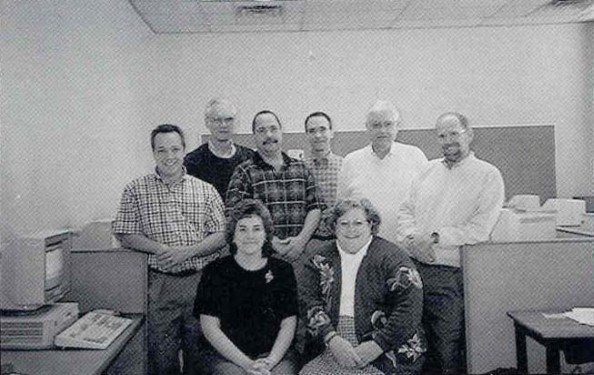
Oct 1998
Departmental Self Study completed.
Nov 1998
First annual luncheon held for department majors generously funded by Donald W. Caudill in honor of Alfred and Shirley Wampler Caudill.
1998-99
A specialized program in Hotel Management is no longer offered.
1999
William F. Stolte retires. Caryn Vazzana, Assistant Professor Economics, and Daniel Vazzana, Assistant Professor of Economics and General Studies, join the department faculty.
Requirements are listed for a Minor in Business Administration. Five concentrations in Business Administration are listed: Accounting, Economics, Finance, Management, and Marketing.
Jan 2002
Department faculty adds Scott Steele, Assistant Professor of Economics.
2000-02
During Draper Building renovation, the Economics and Business department offices are relocated to the Alumni Building Activities Room and Short Street.
Fall 2002
Move back into a refurbished Draper Building, now on first floor. Trish Isaacs becomes Department Chairperson.
2001-03
Information provided concerning preparation for C.P.A. Examination and career in Public Accounting. Options include courses “taken through an articulation agreement with Eastern Kentucky University.” (p. 99).
2004-05
A Minor in Economics is established.
2005
Written Communication Plan developed by department faculty.
2006-07
Phil Spears retires. Mark Roselli joins the department faculty.
2010
Self-study completed.
2011
Volker Grzimek joins faculty.
2012
Martie Kazura retires, Ian Norris joins the faculty as the new Marketing Professor.
Maurice Reid becomes Matton Chair in Business
2013
Anthony Caldwell Joins department faculty
2014
Jean Cupidon joins the faculty as the new Macroeconomics Professor.
Caryn Vazzana becomes Matton Chair in Economics
2015
Wayne Tolliver retires, Nancy Sowers joins the faculty as the new Finance Professor.
2016
The curriculum is modified to include two new optional concentrations in Management Information Systems and in International Business. The Economics major adds a new optional concentration in Finance. David Guggenheim joins the faculty as the new Management Information Systems Professor.